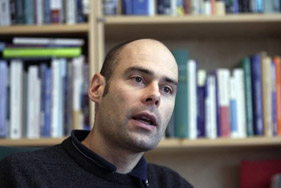Climate change and tourism where are the leaders?

Tourism is extremely vulnerable to climate change but where are the policymakers and serious actions? Asks Stefan Gossling
The Intergovernmental Panel on Climate Change’s Working Group II summary report for policy makers, "Impacts, Adaptation, and Vulnerability" was released this Monday, the result of a six year effort to summarise the latest science on the consequences of climate change for humans and ecosystems.
Almost 750 scientists from 70 countries participated in the preparation of the report, which for the next 5-7 years will represent the authoritative volume on the risks of global warming for agriculture, human health, ecosystems, water supplies and livelihoods.
Which risks are there, and how can they be managed?
To begin with, the report makes the point that man-made climate change is already with us. Evidence of climate change impacts on natural systems is strong, including changes in precipitation and altered hydrological systems, which affects water resource quantity and quality.
Terrestrial, freshwater and marine species have been observed to shift geographical ranges and there are changes in species interactions. Crop yields have been affected negatively. Extremes including heat waves, droughts, floods, cyclones, and wildfires affect ecosystems, food production, water supply, as well as infrastructure and human health. These impacts represent future risks that will become ever more relevant in a warming world, and, it may be argued, all of which are specifically relevant to tourism, as WG II suggests that:
- Low lying coastal zones and island developing states and small islands will be affected by storm surges, coastal flooding and sea level rise
- Large urban populations are at risk from inland flooding
- Extreme weather events will cause the breakdown of infrastructure and critical services, including electricity, water supply and health services
- There is risk of food insecurity and the breakdown of food systems
- Many ecosystems and the biodiversity they contain may be lost
This leads the authors to conclude that managing climate change requires continued efforts to curb emissions, because even serious investments in adaptation will face limits in a significantly warmer world, which corresponds to as little as 1-2°C above preindustrial levels. At global mean temperature increases of 4°C or more, adaptation may, on a global scale, become increasingly less feasible, while the risk of major disruptions increases. Yet, given continuous growth in greenhouse gas emissions on a global scale, this may be the most likely scenario we are heading for.
Where does all of this leave us, as academics, tourism practitioners, decision makers, politicians? To someone who’s been following the IPCC’s work since 1990, when the first assessment report was presented, scenarios of unabated climate change are no longer as scary as the reluctance of policy makers to take serious action on climate change.
Is it unfair to say that we seem to have given up on climate change, accepting the logic of lobbying organisations, denying our individual responsibility to give up on carbon-intense consumption, while accepting that we are leaving very uncertain futures to coming generations?
There has never been more evidence that there is no climate governance. The next "breakthrough" Conference of the Parties will be in 2015, with hopes to enact a new global climate agreement by 2020. This will be far too late to achieve deep year-on-year cuts in emissions. Even governments "leading" global mitigation efforts such as Germany and Sweden had to report that their annual emissions had increased on a consumption basis, notably not even considering their (growing) use of bunker fuels. Other governments, including Australia, appear to abandon efforts to reduce emissions, even publicly questioning the science of climate change. It is a very sorry state of affairs.
The situation in tourism is, both in terms of mitigation and adaption, not much different. There are no leaders to act on climate change, neither in UNWTO, businesses, or politics (a few exceptions confirming this rule), and emissions from global tourism grow steadily, year after year. Yet, tourism is one of the most vulnerable sectors to global climate change. This constitutes a veritabel paradox, and one that is difficult to explain. Mitigation efforts would clearly be economically beneficial, at least until current levels of overcapacity and wasteful consumption are significantly reduced. There is a clear business case for adaptation. Why would it be so difficult to implement policies enabling such processes? This is the question we should be asking ourselves. A good start would be to read the IPCC reports. As of today, summaries for policy makers by both WG I and II are available for this purpose.
Stefan Gossling
Stefan Gössling, has professorships in Sweden at the Linnaeus University School of Business and Economics and Lund University’s Department of Service Management, as well as being research coordinator at the Western Norway Research Institute’s Research Centre for Sustainable Tourism.He is on the editorial board of the Journal of Sustainable Tourism.
Latest Sustainable Tourism Report gets Rave Reviews, GET FREE EXECUTIVE SUMMARY AND REVIEW OFFER HERE
Green Growth Tourism Report special offer HERE
 United Kingdom
United Kingdom United States
United States Asia Pacific
Asia Pacific












































Dozens fall ill in P&O Cruises ship outbreak
Turkish Airlines flight in emergency landing after pilot dies
Boy falls to death on cruise ship
Unexpected wave rocks cruise ship
Woman dies after going overboard in English Channel